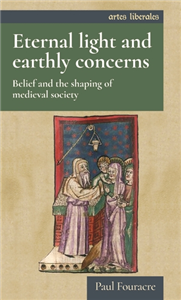Description
More Information
Rights Information
Albania, Algeria, Angola, Argentina, Armenia, Australia, Austria, Bahrain, Belgium, Belize, Benin, Bolivia, Bosnia and Herzegovina, Botswana, Brazil, Bulgaria, Burkina Faso, Burundi, Cameroon, Canada, Cape Verde, Central African Republic, Chad, Chile, China, Colombia, Comoros, Congo [DRC], Congo, Republic of the, Costa Rica, Ivory Coast, Croatia, Czech Republic, Denmark, Djibouti, Ecuador, Egypt, El Salvador, Equatorial Guinea, Eritrea, Estonia, Ethiopia, Faroe Islands, Finland, France, French Guiana, Gabon, Gambia, Georgia, Germany, Ghana, Greece, Guatemala, Guinea, Guinea-Bissau, Guyana, Honduras, Hongkong, Hungary, Iceland, India, Indonesia, Iran, Iraq, Ireland, Israel, Italy, Japan, Jordan, Kazakhstan, Kenya, Kuwait, Latvia, Lebanon, Lesotho, Liberia, Libya, Lithuania, Luxembourg, Macau, China, Macedonia [FYROM], Madagascar, Malawi, Malaysia, Mali, Malta, Mauritania, Mauritius, Mayotte, Mexico, Mongolia, Montenegro, Morocco, Mozambique, Namibia, Netherlands, New Zealand, Nicaragua, Niger, Nigeria, Norway, Oman, Pakistan, Panama, Paraguay, Peru, Philippines, Poland, Portugal, Puerto Rico, Qatar, Reunion, Romania, Russia, Rwanda, Saint Helena, Sao Tome and Principe, Saudi Arabia, Senegal, Serbia, Seychelles, Sierra Leone, Singapore, Slovakia, Slovenia, Somalia, South Africa, South Korea, Spain, Sri Lanka, Sudan, Suriname, Swaziland, Sweden, Switzerland, Syria, Taiwan, Tanzania, Thailand, Timor-Leste, Togo, Tokelau, Tunisia, Turkey, Uganda, Ukraine, United Arab Emirates, United Kingdom, United States, Uruguay, Venezuela, Vietnam, Western Sahara, Yemen, Zambia, Zimbabwe, South Sudan, Cyprus, Palestine, Bangladesh, Cambodia, Liechtenstein, Azerbaijan
Endorsements
In early Christianity it was established that every church should have a light burning on the altar at all times. This unique study investigates the material and social consequences of maintaining such 'eternal lights'. Never before has the subject been treated as important to the political economy or explored over the whole of the medieval period. The cost of maintaining the lights meant that only the elite could afford to do so, with peasants being organised to provide funds. Later, as society became wealthier, a wider range of people became providers and organised themselves into guilds or confraternities in support of the church and with the particular aim of commemorating their members. Power over the lights, and over individual churches, shifted to these organisations, and when belief in the efficacy of burning lights was challenged in the Reformation, it was such people who were capable of bringing the practice of burning eternal lights to a sudden and sometimes violent end. The study concludes that the practice of keeping a flame on the altar did indeed have important material and cultural consequences. Because it examines the relation between belief and materiality at every turn, the book also serves as a guide to how Western Europe developed from the decline of the Roman Empire to the advent of the Protestant state.
Reviews
In early Christianity it was established that every church should have a light burning on the altar at all times. This unique study investigates the material and social consequences of maintaining such 'eternal lights'. Never before has the subject been treated as important to the political economy or explored over the whole of the medieval period. The cost of maintaining the lights meant that only the elite could afford to do so, with peasants being organised to provide funds. Later, as society became wealthier, a wider range of people became providers and organised themselves into guilds or confraternities in support of the church and with the particular aim of commemorating their members. Power over the lights, and over individual churches, shifted to these organisations, and when belief in the efficacy of burning lights was challenged in the Reformation, it was such people who were capable of bringing the practice of burning eternal lights to a sudden and sometimes violent end. The study concludes that the practice of keeping a flame on the altar did indeed have important material and cultural consequences. Because it examines the relation between belief and materiality at every turn, the book also serves as a guide to how Western Europe developed from the decline of the Roman Empire to the advent of the Protestant state.
Author Biography
Paul Fouracre is Professor of Medieval History at the University of Manchester
Manchester University Press
Manchester University Press is a leading UK publisher known for excellent research in the humanities and social sciences.
View all titlesBibliographic Information
- Publisher Manchester University Press
- Publication Date February 2023
- Orginal LanguageEnglish
- ISBN/Identifier 9781526167200 / 1526167204
- Publication Country or regionUnited Kingdom
- FormatPrint PDF
- Pages248
- ReadershipGeneral/trade
- Publish StatusPublished
- Dimensions216 X 138 mm
- Biblio NotesDerived from Proprietary 1941
- SeriesArtes Liberales
- Reference Code15091
Manchester University Press has chosen to review this offer before it proceeds.
You will receive an email update that will bring you back to complete the process.
You can also check the status in the My Offers area

Please wait while the payment is being prepared.
Do not close this window.



